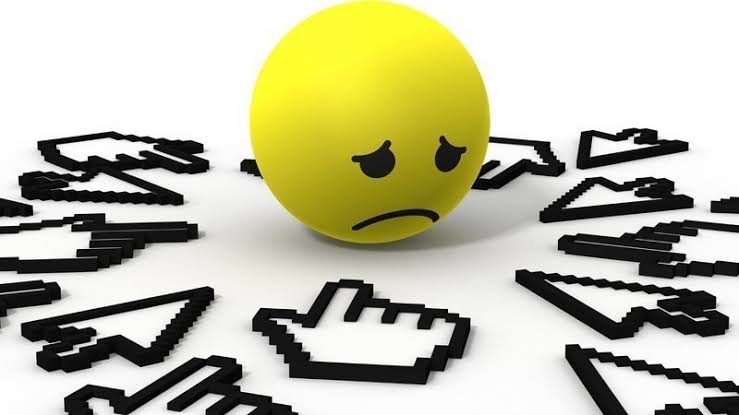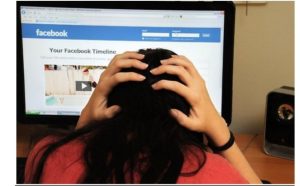
Social Media Defamation Cases Could Be Filed Worldwide, Says European Legal Advisor
Charu Priya
The accessibility of internet to common man has changed everyone’s lives. The platform provided by the internet has made human interaction easier than ever before. However, such increase in convenience of communication has proportionally increased the inconvenience caused by the abuse of the mediums of communication. Removing barriers to freedom of interaction, has given unfettered capabilities, primarily on social networking sites, to people who post unnecessary and false statements about a person or an entity and thereby harming their goodwill and reputation. Such an act, though colloquially known as “trolls”, actually amounts to cyber defamation.

What is Cyber Defamation and how is it different from Physical Defamation?
Defamation has been defined under Section 499 of the Indian Penal Code (IPC) as whoever, by words either spoken or intended to be read, or by signs or by visible representations, makes or publishes any imputation concerning any person intending to harm, or knowing or having reason to believe that such imputation will harm, the reputation of such person is said to defame that person.
Defamation falls into two categories:
Libel – A defamatory statement published in a written form.
Slander – A defamatory statement made in a verbal form (spoken).
However, a mere defamatory statement does not amount to defamation. The publication of such statement is a pre-requisite to establish defamation.
Similarly, any such act taking place on the cyber space leads to cyber defamation or online defamation. Cyber defamation occurs when a computer connected to the internet is used as a tool, or a medium to defame a person or an entity. For example: Publishing of a defamatory statement against a person on a social networking site such as Facebook, Twitter, etc., or sending of emails containing defamatory content about a person with the intention to defame him / her. Further, given the broad coverage of internet and the rate of dissemination of information on this platform, it is difficult to ascertain the extent of damage in any monetary value.
Although, the medium of committing this act in the physical and digital world are different, the law of defamation applies the same. The liability regarding cyber defamation in India can be:
1. On the author of the defamatory material online;
2. On the service provider or an intermediary. However, it is pertinent to note that as per Section 79 of the Information Technology Act, 2000, an intermediary shall not be liable if it does not initiate or modify such defamatory content but merely acts as a facilitator. Further, this protection is also subject to the condition that the intermediary shall comply with the due diligence and Intermediary Guidelines requirements issued by the Central Government and also remove such unlawful content on being notified by the appropriate Government or its agency or upon receiving actual knowledge.

Law on Cyber Defamation in India
In India, Section 499 of the Indian Penal Code primarily governs the law on defamation, however, it is pertinent to note that the law has been extended to “electronic documents”. Section 469 of the IPC (forgery for purpose of harming reputation) has been amended by the Information Technology Act, 2000 to include ‘electronic record forged’ and now reads as a whole as – whoever commits forgery, intending that the document or electronic record forged shall harm the reputation of any party, or knowing that it is likely to be used for that purpose, shall be punished with imprisonment of either description for a term which may extend to three years, and shall also be liable to fine.
Intermediary Liability and Cyber Defamation
Section 79 of the IT Act provides a safe harbor to intermediaries against any act of defamation. Section 79 provides that an intermediary is not liable for third party information, data, links hosted on its platform. However, the safe harbor protection is limited to certain conditions viz. an intermediary shall be liable if it initiates the transmission of such defamatory content, selects the receiver of such content or modifies such content.
Defamation v. Free Speech
Freedom of Speech and Expression, as provided by the Constitution under Article 19 (1) (a), provides that all citizens shall have the right to freedom of speech and expression. However, such freedom is subject to reasonable restriction. The protection of reputation of another person falls within the ambit of reasonable restriction and any comment or remark which hampers the reputation of another person (unless the statement is true) would invite liability under the law of defamation.

Judiciary on Cyber Defamation
In its first ever case on Cyber Defamation in SMC Pneumatics (India) Pvt. Ltd. v. Jogesh Kwatra, wherein a disgruntled employee sent derogatory, defamatory, vulgar and abusive emails to the company’s fellow employers and to its subsidiaries all over the world with an intent to defame the company along with its managing director, the High Court of Delhi granted ex-parte ad interim injunction restraining the defendant from defaming the Plaintiff in both the physical and in the cyber space.
We are frequently asked the question: are we allowed to publish, post, republish any information, content, picture, video or data on COVID-19 when using our private social media accounts? Afterall, it is in the public interest and everyone is doing it
an individual, before communicating an opinion, posting or sharing any videos in relation to COVID-19, by whatever method of communication, should consider:
1. Could this statement be interpreted as defamatory or an invasion of privacy for others? (i.e. does this statement suggest anything negative about an individual or entity in particular? Does it reveal any information or post any material regarding someone that can be classified as private content, a private location and/or unsuitable for public display); and
2. Could this statement, post or content cause harm? (particularly to reputation and honour to an individual or entity, on a national and international basis).
We should all be aware that the protection of privacy, for the data of patients, defamation, cybercrimes and all other related legal provisions in UAE are going to be likely reviewed and subject to enforcement proceedings should any violations be revealed. The priority now is for public safety but authorities and concerned individuals will be monitoring and documenting posted content that may be revisited in the future to explore any legal liabilities.
Conclusion
“With great power comes great responsibility” a familiar phrase in popular culture from the Spiderman story lines appropriately describes the situation of the use of technology and its potential misuse. With the advent of internet age, the convenience in communication has increased tremendously. However, such convenience comes with a catch. The effortless transfer of data and information over the internet has made it a critical hotspot for defamation. Although, there are laws in place which prohibit people from posting such content online, most people are not aware of the same or are too negligent to realize whether such content is defamatory or not. At times, when free speech runs contradictory to a person’s reputation it becomes pertinent for the State to establish a boundary, lest that free speech becomes a weapon in the hands of certain people. There is a dire need of a system which educates and makes people aware of what to do and what not to do, what is wrong and what is right and what is defamatory and what is not defamatory in the cyber space. Further, the intermediaries which provide such an open platform should monitor the content posted on it and take appropriate actions against such users who post such defamatory content in order to avoid repetition in the future.